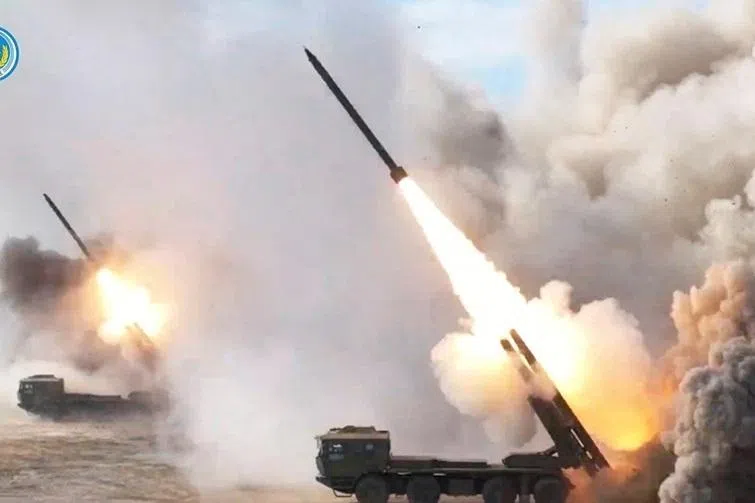Taiwan election: Understanding the outcry from Chinese state media and netizens
While Beijing has been relatively restrained in commenting on the Taiwan election, Chinese state media has been criticising the US for backing the Democratic Progressive Party in opposing the mainland. Zaobao journalist Edwin Ong speaks to Sun Zhe, co-director of the China Initiative at Columbia University's School of International and Public Affairs, who opines that Chinese state media was raising reasonable doubt on behalf of the state.
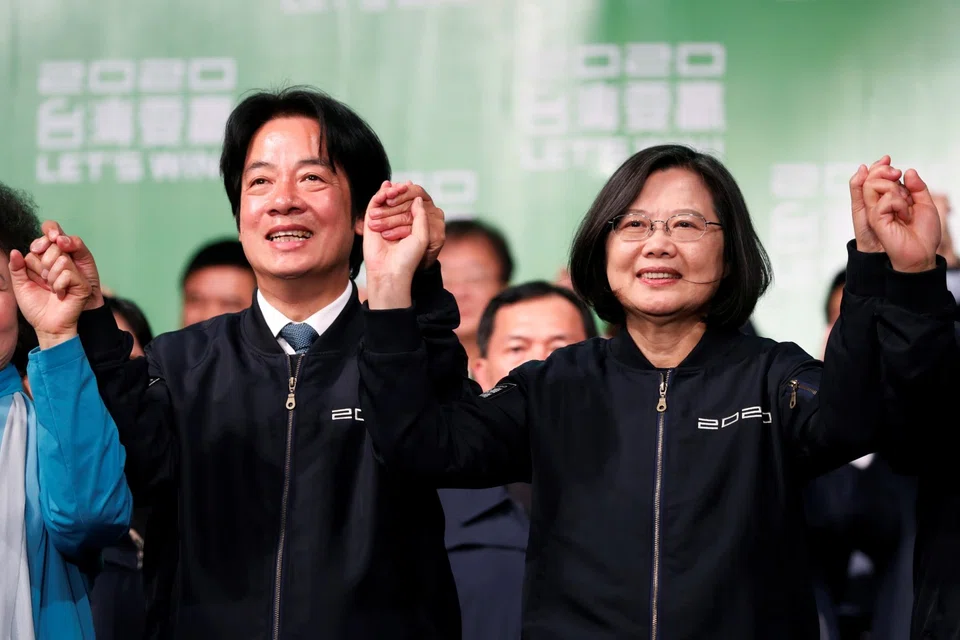
The results of Taiwan's presidential and legislative elections are in. The Chinese government has been restrained in commenting on the results, reiterating only its consistent position against Taiwan independence, and avoiding mention of Taiwan president Tsai Ing-wen, who achieved a landslide victory. On the other hand, Xinhua News Agency, China's state media, alleged that "external dark forces" were at play, claiming that external manipulation was responsible for the election results to a large extent.
In response to the results of the Taiwan elections, Geng Shuang, spokesperson of China's Ministry of Foreign Affairs said on 12 January 2020: "Regardless of what happens in Taiwan, the basic facts won't change: there is only one China in the world and Taiwan is part of China. The Chinese government's position won't change: we stick to the one-China principle and oppose 'Taiwan independence', 'two Chinas' and 'one China, one Taiwan'. The international community's consensus on staying committed to the one-China principle won't change, either."
In a message directed at the international community, Geng Shuang continued, "We hope and believe that the international community will continue to adhere to the one-China principle, and understand and support the Chinese people's just cause of opposing 'Taiwan independence' separatist activities and striving to achieve national reunification."
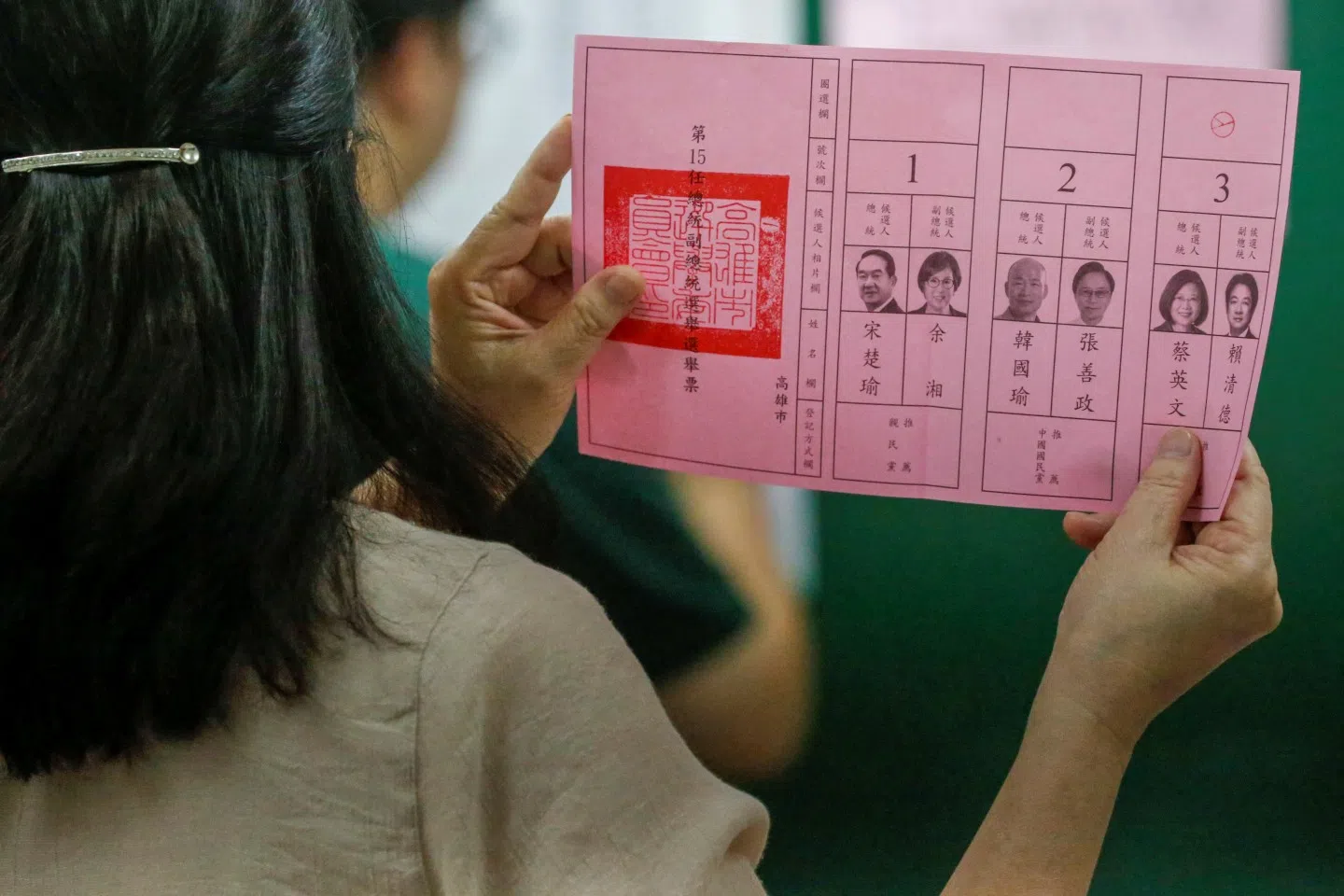
Various Chinese state media like the People's Daily and Xinhua have released harsh reports saying the election was "not a normal one" and accused Tsai and the Democratic Progressive Party (DPP) of using "dirty tactics such as cheating, repression and intimidation to get votes". The People's Daily even accused the US and some of the West's anti-China political forces of openly intervening in the elections. The US in particular, was singled out for implementing a series of acts related to Taiwan that helped the DPP fight against the mainland.
In the process of this election, even when the Kuomintang exposed the ills of the DPP's reign, and cast doubt on Tsai's doctorate degree, Western media have refrained from reporting such news.
Xinhua pointed out that for three years, and especially the past year, the US has increasingly played the "Taiwan card", and the Tsai government has actively gone along by making use of the US as a platform to its advantage, including using Hong Kong's unrest to add fuel to the fire in a bid to mislead the Taiwan people. It claimed that, to a large extent, "external dark forces" were responsible for the election results.
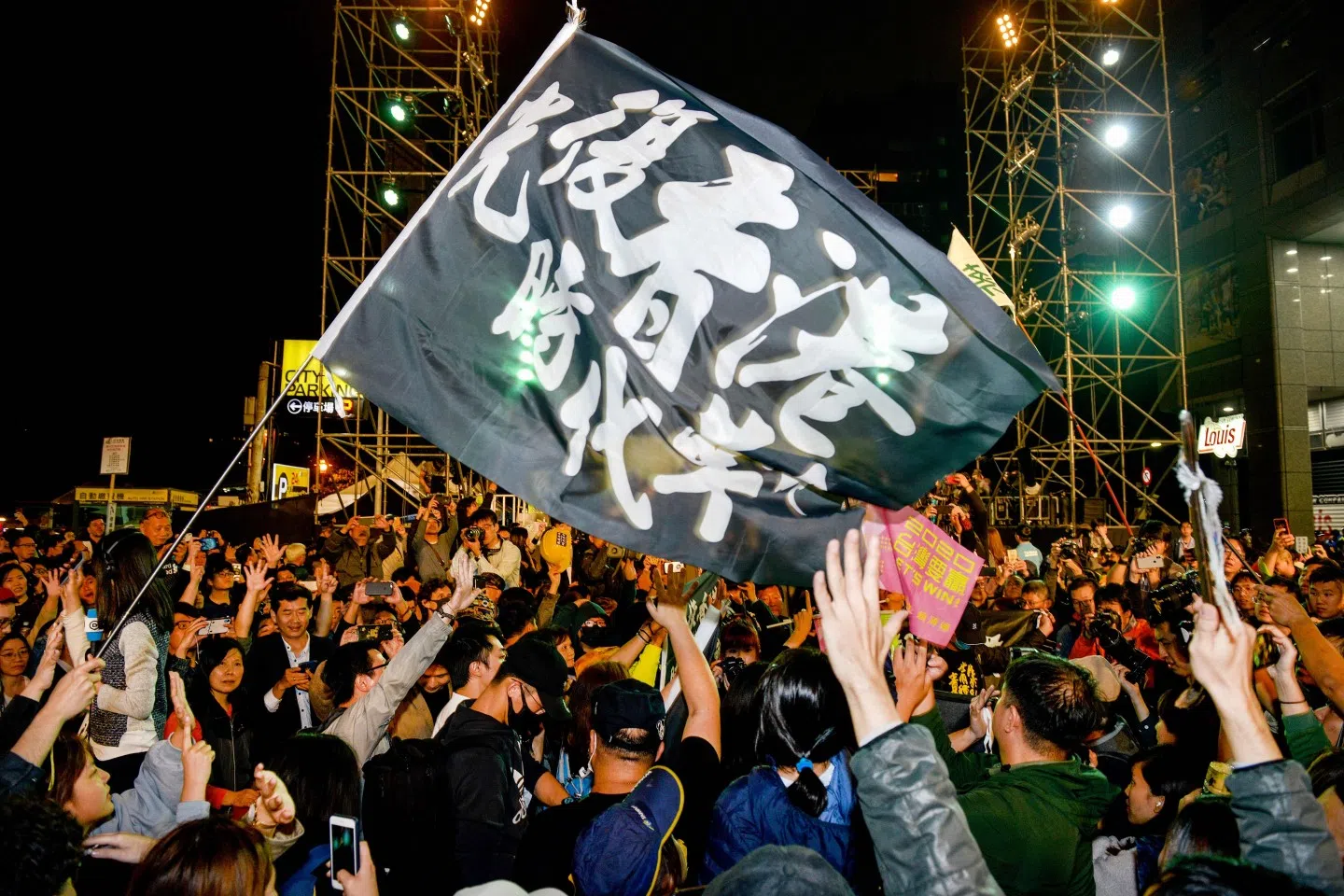
In response to Xinhua's alleged claim of "external dark forces" working in the Taiwan elections, Sun Zhe, co-director of the China Initiative at Columbia University's School of International and Public Affairs, told Lianhe Zaobao that Xinhua was actually raising reasonable doubt on behalf of the state.
He said, "China is unclear whether there are many organisations such as foundations for democracy, or non-governmental organisations in the US that are secretly supporting Taiwan. China also does not know if, similar to the Hong Kong protests, 'behind-the-scenes black hands' are at work in Taiwan."
He believes that the position of Western media is clear: the reports are in favour of Tsai. In the process of this election, even when the Kuomintang exposed the ills of the DPP's reign, and cast doubt on Tsai's doctorate degree, Western media have refrained from reporting such news.
State media: the mainland is firmly in control of cross-strait relations
In a commentary released on 12 January 2020, Xinhua claimed that there was an increasing disparity in strength between both sides of the Taiwan Strait. It affirmed that the mainland was in the driving seat of cross-strait relations and that "the basic pattern of cross-Strait relations would not change because of an election". Also, whether it was to "curb 'Taiwan independence' secessionist activities or to benefit Taiwan compatriots, the mainland had a full 'policy toolbox'".
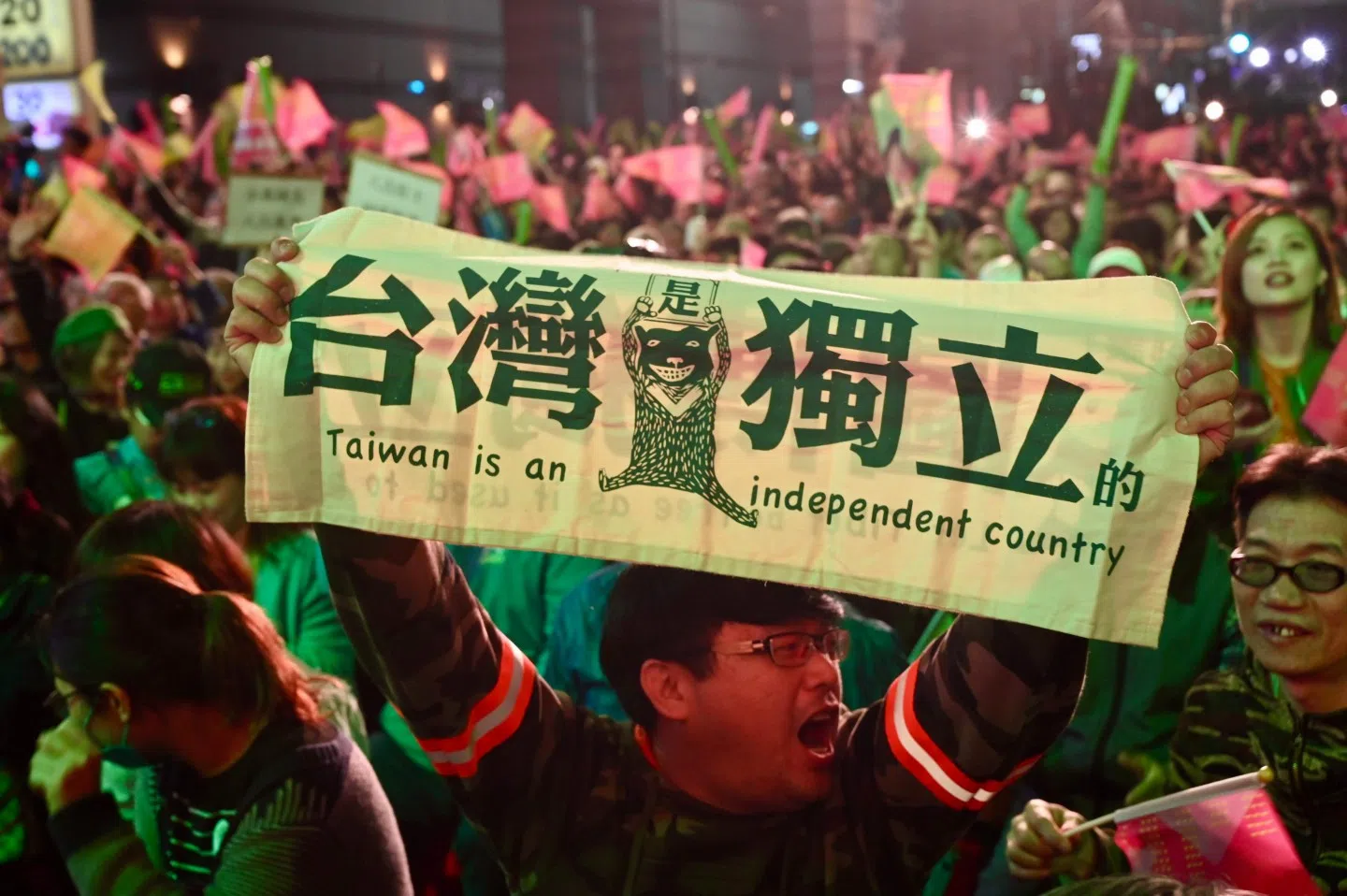
In light of these assessments, Sun Zhe believes that the crux of the issue lies in the mainland giving its assurance that it would not make another mistake in cross-strait relations. He said, "[The mainland] should not rush into things. Sometimes, they should let the bullet fly for a period of time, and quietly observe the situation." Sun added that in retrospect, the mainland has actually already demonstrated a milder response in the way it handled the Hong Kong protests.
Sun predicts that the mainland's current work still lies in promoting integrated development with Taiwan. As such, the mainland is unlikely to use a termination of the Economic Cooperation Framework Agreement (ECFA) - entering its tenth year this year and due for review - to threaten the DPP.
Academics: mainland could reach new consensus following Tsai's call to resume talks with China
As for the "1992 Consensus" that has locked both sides in a stalemate, Sun thinks that the mainland could make use of Tsai's willingness to resume talks to reach a new consensus with the DPP within this year. He said, "Since both sides are already in a stalemate, why not just create a new consensus altogether."
On 12 January 2020, the majority of Chinese state media emphasised that China is firmly in control of cross-strait relations. The China Daily highlighted that regardless of what happens in Taiwan, the mainland's position is consistent and clear.
Meanwhile, some mainland Chinese netizens remained disappointed with the election results, aggressively calling for Taiwan "to be unified by force" on the night of 11 January 2020.
"...Even in the event that we decide to employ military force, we must fly the flag of 'peaceful reunification' right up to the moment that a missile is launched." - Hu Xijin, Editor, Global Times
In response to this, Hu Xijin, editor of the Global Times, asked netizens to calm down in a Weibo post dated 12 January 2020. He pointed out that such accusations could provoke a full-on war with the US that might pose a severe strategic risk to China's military and economy.
He believes that unification should be fulfilled in a way that is least costly to the Chinese society. He said, "The banner of 'peaceful reunification' must not be thrown away at any time. It represents the moral high ground for cross-strait policy. Even in the event that we decide to employ military force, we must fly the flag of 'peaceful reunification' right up to the moment that a missile is launched."
The People's Daily urged mainland Chinese to uphold the mindset that both sides of the Taiwan Strait are "one family". It called for them to be persistent in filling up the bottomless pit of desire of the Taiwan people, and use kindness to overcome the bitterness in their hearts.
In addition, in response to Mike Pompeo, US Secretary of State, Dominic Raab, UK Foreign Secretary, and Japanese Foreign Minister Toshimitsu Motegi's congratulatory messages to Tsai, Geng Shuang remarked in his statement "Certain Countries' Congratulatory Messages on the Election in the Taiwan Region" on 12 January 2020 that: "The Taiwan issue concerns China's core interests. We oppose any forms of official ties between the Taiwan region and countries that have diplomatic relations with China. The one-China principle is a basic norm governing international relations and a universal consensus of the international community. We hope those countries will earnestly abide by the one-China principle, refrain from having any official ties or exchanges with the Taiwan region, deal with Taiwan-related issues properly and with caution, avoid sending any wrong signals to the 'Taiwan independence' forces, take concrete actions for the peaceful development of relations across the Taiwan Strait, and uphold the larger picture of their own bilateral relations with China."



![[Big read] When the Arctic opens, what happens to Singapore?](https://cassette.sphdigital.com.sg/image/thinkchina/da65edebca34645c711c55e83e9877109b3c53847ebb1305573974651df1d13a)
